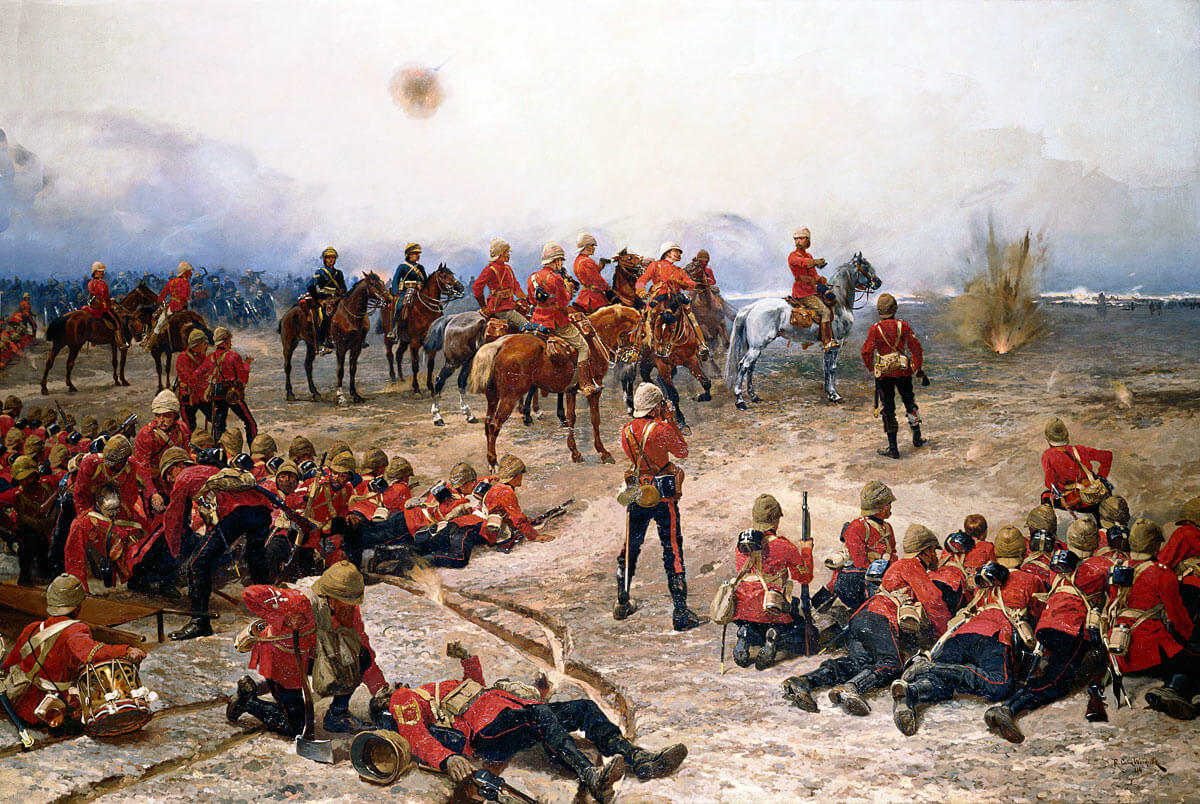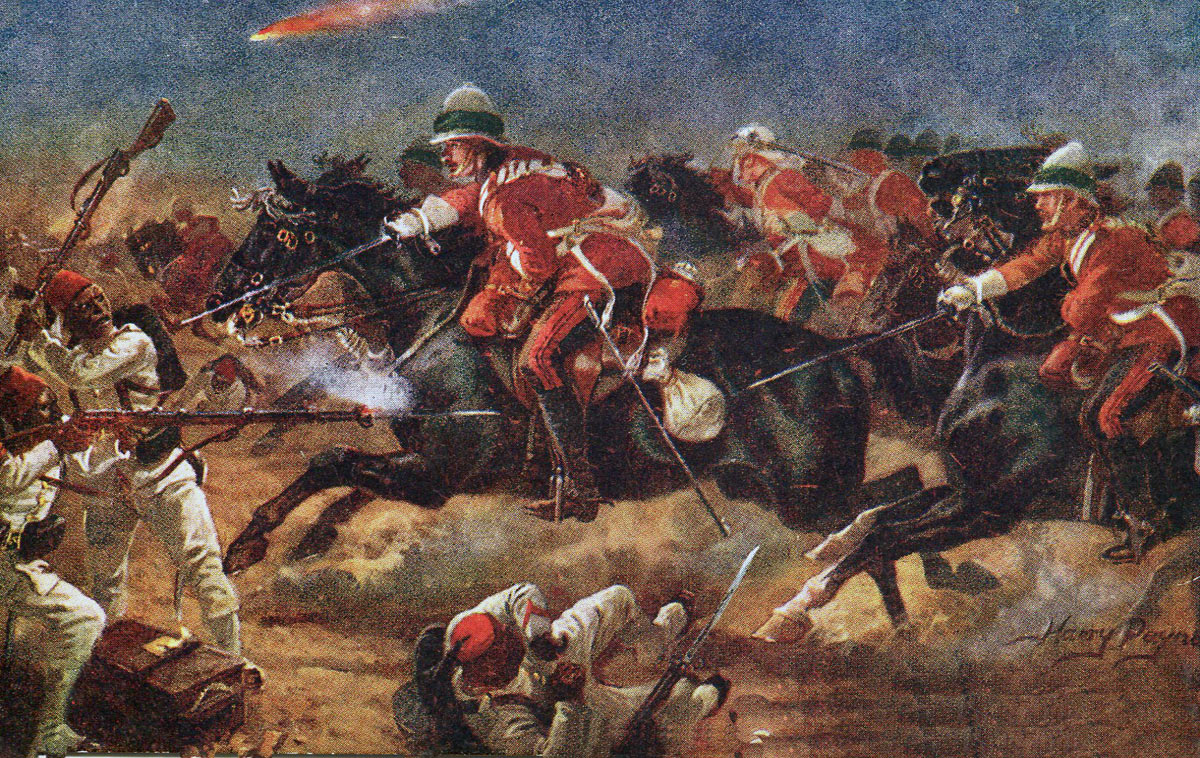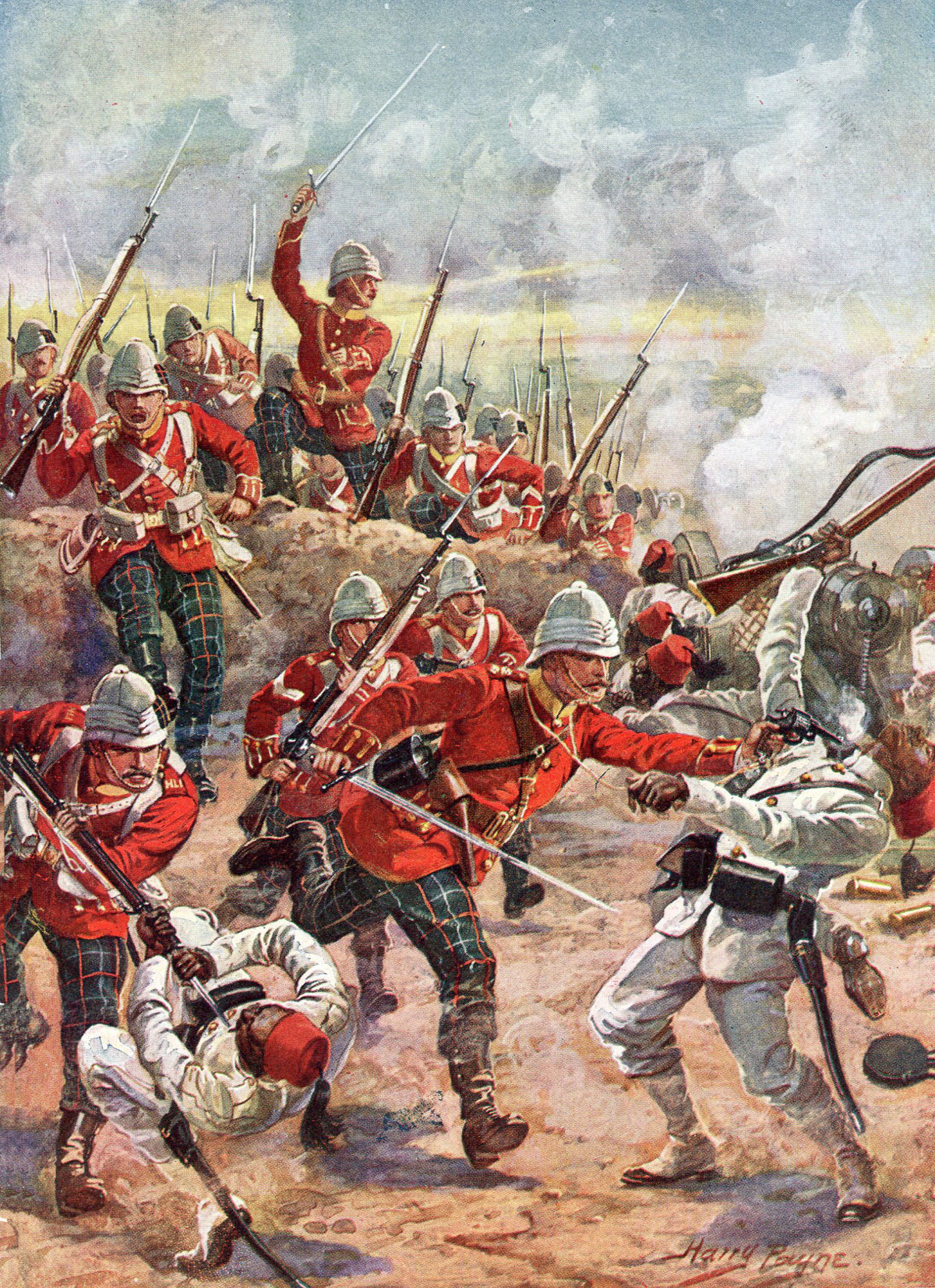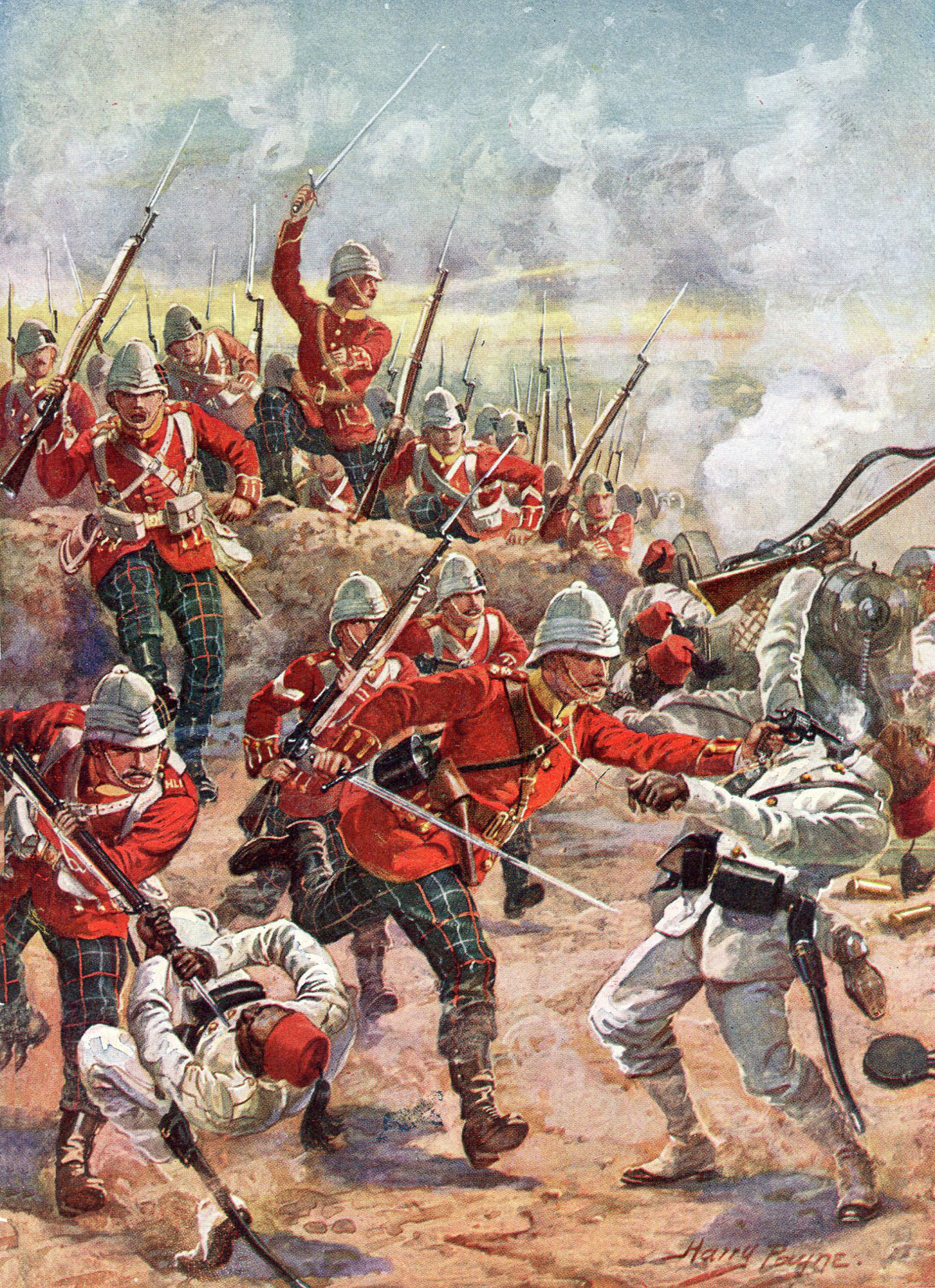The British Conquest of Egypt in 1882 marks a significant episode in the broader narrative of imperial expansion and nationalist movements. Central to this conflict was the Battle of Tell El Kebir, which transpired on September 13, 1882, culminating in a decisive victory for British forces under General Garnet Wolseley against the Egyptian troops commanded by Ahmed ʻUrabi. The battle not only symbolized the decline of Egyptian sovereignty under the Ottoman Empire but also underscored the growing tensions resulting from European intervention, particularly against the backdrop of the Suez Canal’s strategic importance.
In this analysis, you will explore the intricate developments leading to the battle, including the motivations behind British military intervention and the socio-political climate within Egypt. The article will detail the military engagements, the strategies employed by both sides, and the aftermath of the British victory, illuminating the long-term consequences of the conflict for Egypt and its people, and how it set the stage for continued foreign dominance in the region.
The British Conquest of Egypt: A Comprehensive Analysis
Historical Context of British Influence in Egypt
Egypt’s Autonomy under the Ottoman Empire
In the late 19th century, Egypt occupied a unique geopolitical position as a nominally autonomous province within the Ottoman Empire. Your understanding of Egypt’s political structure during this period must recognize the dual influence of Ottoman oversight and growing European encroachment. Autonomy, although legally recognized, translated into limited self-governing capabilities, chiefly in local administration and some economic decisions. The province’s economic health hinged on agricultural output and trade, yet this autonomy was increasingly threatened by external powers eager to exert control for their own strategic and financial gains.
The Role of the Suez Canal
The construction of the Suez Canal, completed in 1869, markedly intensified British interest in Egypt. This strategic waterway formed a vital link between Europe and its colonies in Asia, significantly reducing travel time for maritime trade. You should appreciate how Britain, perceiving the canal as critical to maintaining its global imperial interests, intensified its political and military influence in Egypt. This infrastructural marvel, while a symbol of modernization, became a point of contention and a catalyst for foreign intervention, further entwining Egypt’s fate with that of Europe.
Western Powers and Economic Interests
Emerging debt and consequential dependence on European financial institutions during the reign of Ismail Pasha laid the groundwork for deeper foreign intervention. Ismail’s ambitious modernization projects, financed through loans from British and French banks, resulted in a financial burden that would prove economically destabilizing for Egypt. The growing resentment among Egyptians, particularly progressive middle classes and military officers, reflected a broader dissatisfaction with foreign control and exploitation, setting the stage for revolutionary sentiments.
Emerging Nationalism among Egyptians
By the late 19th century, a robust wave of nationalism began to coalesce within Egyptian society, culminating in a significant movement aimed at reducing foreign influence and achieving autonomy. The sentiment was palpable among intellectuals and military officials who viewed foreign dominance as an affront to their identity and sovereignty. Your focus on the burgeoning sense of nationalism is essential for understanding the eventual rise of prominent nationalist figures, who sought to reclaim Egyptian agency from Western control.
Ahmed ʻUrabi and the Nationalist Movement
Rise of Ahmed ʻUrabi
Colonel Ahmed ʻUrabi emerged as the face of the nationalist movement during a period of extensive foreign control. Your analysis of his character and motivations must reflect not only his military background but also his socio-political aspirations for Egypt. As a leader, he garnered immense support from various segments of the society, including the military and civilian populations, who viewed him as a champion of their rights and aspirations, standing firmly against foreign impositions.
Grievances of the Egyptian Military
The grievances stemming from the Egyptian military were profound and widespread. Officers, particularly the indigenous officers, were often sidelined in favor of their foreign counterparts, which bred resentment and a sense of betrayal among the native Egyptian military elite. You must examine how these grievances coalesced into demands for reform that would empower Egyptian officers within an autonomously governed Egypt, thereby challenging the systemic inequalities inherited from Ottoman rule.
‘Egypt for the Egyptians’ Slogan
The slogan “Egypt for the Egyptians” encapsulated the ethos of the nationalist movement spearheaded by ʻUrabi. This phrase was not merely a rallying cry; it represented a larger ideological struggle against foreign interference and a call for self-determination. You should highlight how this slogan inspired various classes within Egyptian society to unite under a common purpose—reclaiming Egypt’s sovereignty from foreign powers.
Demands for Reform and Autonomy
Alongside the slogan, tangible demands for reforms emerged as central tenets of the nationalist movement. The need for a constitutional government that reflected the will of Egyptians became increasingly pressing. You should illustrate how ʻUrabi and his supporters sought to create an environment where Egyptians could effectively participate in governance, moving past years of subjugation to foreign interests.

Prelude to the Conquest
Franco-British Fleet’s Arrival at Alexandria
The arrival of a combined Franco-British fleet at Alexandria in May of 1882 marked a critical juncture in Anglo-Egyptian relations. Your exploration of this event should consider how this militaristic show of force signified the culmination of mounting tensions between Egyptian authorities and Western powers fearful of an autonomous Egypt under ʻUrabi’s influence. The fleet’s presence was interpreted as a prelude to military intervention aimed at reasserting Western control.
Violent Riots and Urabi’s Response
The burgeoning unrest in Alexandria, characterized by violent riots, showcased the depth of societal frustration. Your narrative must reflect how Urabi’s response to the tumult—encouraging a show of military presence—was both tactical and symbolic, attempting to project strength against foreign forces while galvanizing support among the Egyptian populace. This volatile moment foreshadowed the impending military confrontations that would further alter the course of Egyptian history.
Britain’s Decision for Military Intervention
Once Britain established a narrative of instability, the decision to intervene militarily became almost inevitable. You should analyze how perceived threats from Urabi’s nationalist movement catalyzed a shift in British policy, moving from passive observation to active engagement. This decision illustrated the broader imperial strategy of safeguarding economic interests at the expense of Egyptian sovereignty.
Ultimatum to the Egyptian Government
Britain’s ultimatum to the Egyptian government constituted a significant turning point; it was a direct challenge to Egyptian autonomy. Your examination of this development should consider the implications of such a demand, especially how it served as both a provocation and a calculated means to justify military engagement when Egypt inevitably resisted. The refusal to comply reinforced prevailing misgivings regarding external control.
The Bombardment of Alexandria
Strategic Importance of Alexandria
Alexandria held strategic significance not only as a commercial hub but also as a symbol of Egyptian resilience against foreign threats. Your analysis should highlight how the city’s fortifications represented both military might and local pride, making its attack a poignant illustration of foreign oppression. The broader ramifications of Alexandria’s fall must also be explored, as its capture would alter the balance of power in the region.
Royal Navy’s Bombardment Order
The Royal Navy’s order to bombard Alexandria was executed with precision and heralded as a swift tactical movement aimed at crippling Urabi’s defenses. You should assess the effectiveness of this bombardment, weighing its immediate tactical success against the long-term implications for British-Egyptian relations and the national psyche of the Egyptian people, who saw it as an act of overt aggression.
Egyptian Coastal Defenses
Despite the might of the British fleet, the Egyptian coastal defenses put up a formidable fight. An analysis of these defenses should reflect on the resolve of the Egyptian forces, who, despite facing overwhelming odds, demonstrated courage in the face of imperial aggression. Your focus here should reveal the complexities of military engagements, where bravery and national identity were pitted against colonial ambitions.
Immediate Aftermath of the Bombardment
The aftermath of the bombardment left Alexandria in disarray, with devastation marking both the physical landscape and the morale of the Egyptian populace. You must delve into the psychological ramifications for Egyptians, who were confronted with the stark realities of foreign military force and the erosion of their sovereignty. This moment foreshadowed the deeper societal fissures that would emerge in the wake of British occupation.

British Forces Land in Egypt
Initial Landings near Alexandria
With British forces landing outside Alexandria, the military campaign took a decisive turn. You should analyze the significance of these landings, noting how they not only marked an escalation in military engagement but also a direct challenge to Egyptian authority. The strategic positioning of British troops around such a pivotal location laid the groundwork for subsequent confrontations.
Engagement with Egyptian Resistance
The initial engagements with Egyptian resistance displayed a mix of tactical brilliance and fortitude on both sides. Your focus should examine how British forces, drawn by superior artillery and training, clashed with Egyptian defenders eager to protect their homeland. This point of engagement revealed the complexities of the conflict—where foreign military prowess met with indigenous resolve.
The Capture of Alexandria
The eventual capture of Alexandria represented a pivotal moment in the Anglo-Egyptian War, yet it came at a significant cost. Your examination of how such victories were celebrated in Britain, juxtaposed against the simmering resentment and discontent growing within Egypt, would provide insightful contrasts on the nature of imperialism and local loss.
Arrival of General Garnet Wolseley
The arrival of General Garnet Wolseley with reinforcements brought a renewed vigor to the British campaign. Your analysis should reflect Wolseley’s military strategy and leadership style, assessing how his experiences shaped his approach to the subsequent engagements in Egypt. With a well-organized force, Wolseley’s commands represented the calculated precision of imperial military operations.
Strategic Movements Towards Ismailia
Troop Organization Post-Capture
Following the capture of Alexandria, your understanding must encompass the reorganization of British troops as they prepared for their advance toward Ismailia. This transition was not merely a logistical maneuver but a critical moment where British military strategy aimed at solidifying control over the Suez Canal region emerged.
Advance Along the Suez Canal
The advance along the Suez Canal illustrated both strategic foresight and the urgency of maintaining control over key infrastructure. An analysis here should consider how the successful maneuvering of troops along this vital corridor reinforced British dominance while simultaneously heightening tensions with Egyptian forces determined to resist.
Occupation of Ismailia
The occupation of Ismailia marked a significant phase in the British campaign—an assertion of strength that sheared through Egyptian defensive lines. You should highlight the socio-political ramifications of such an occupation for both British colonial administrators and the local Egyptian population, emphasizing how this moment crystallized the tensions fueling nationalist sentiments.
Egyptian Defensive Preparations
The Egyptian defensive preparations reflected a desperate yet determined response to British advances. You must assess how the fortifications and mobilizations indicated both strategic awareness and an urgent need to retain national pride in the face of overwhelming foreign aggression. This idea of preparation also connects to broader themes of resistance that would continue to evolve throughout the conflict.

The Lead-Up to the Battle of Tell El Kebir
Urabi’s Defensive Posture
Colonel Urabi’s strategic positioning ahead of the Battle of Tell El Kebir underscored his understanding of the gravity of the military situation. Your examination should focus on how Urabi’s defensive stance represented an acutely tactical approach, blending traditional military strategies with newfound nationalistic fervor, as he sought to galvanize his forces against the impending British assault.
British Reconnaissance Missions
British reconnaissance missions prior to the battle provided critical intelligence that shaped military tactics. Your analysis must delve into the impact of these missions, which highlighted not only British capabilities but also underscored ambitious imperial strategies that seemed meticulously crafted to capitalize on Egyptian weaknesses.
Wolseley’s Tactical Planning
General Wolseley’s tactical planning for the upcoming engagement was characterized by a blend of traditional warfare techniques and innovative tactics aimed at ensuring surprise and efficiency. Your focus on this aspect should illuminate how military planning was critical to the British advantage, reflecting on both the foresight of British commanders and the stark reality that Urabi’s forces faced against a technologically superior adversary.
Night March to Surprise the Egyptians
The decision to embark on a night march under the cover of darkness illuminated both the strategic acumen of British forces and the precariousness of Egyptian defenses. This maneuver would be pivotal to creating the element of surprise, and your analysis should illustrate the risks involved in such Sherwood marches as both sides prepared for an inevitable clash.
The Battle of Tell El Kebir
Initial Engagements at Dawn
The Battle of Tell El Kebir commenced with fierce initial engagements as British forces made their frontal assault as dawn broke. Here, your reflections should capture the chaotic intensity of battle—the sounds, the sights, and the fervor individuals experienced. This moment marked a defining moment not just in the battle itself but in the broader context of British military history.
Charge and Assault Tactics
British tactics, marked by their emphasis on disciplined charge and mechanized firepower, demonstrated effectiveness against the Egyptian positions. In your analysis, you should draw attention to the contrasting styles of warfare and their implications for both military cultures—where British professionalism met Egyptian resolve head-on in a tumultuous cacophony of violence.
Egyptian Defensive Failures
The failures in Egyptian defenses were palpable and had detrimental effects on Urabi’s forces. Your examination should delve into the specific reasons behind these failures, reflecting on how tactical missteps and the sheer force of British firepower overwhelmed defenses designed for traditional styles of warfare. The consequences of these errors were severe, shaping the ensuing turmoil for both the military and civilian population.
Pursuit of the Broken Enemy
The aftermath of engagements saw the British pursing the shattered remnants of Urabi’s forces. Your analysis should reflect how this pursuit represented a critical escalation in the conflict, one that would resonate deeply in the collective Egyptian psyche as a moment of national defeat. Additionally, this pursuit signified the brutal realities of colonial warfare, where the ramifications of conflict extended far beyond the battlefield.

Casualties and Losses
British Casualties
While British casualties were relatively light compared to their Egyptian counterparts, the implications of those losses were nevertheless significant. Your examination should consider how these numbers played into the broader narratives of empire and colonial might, even as British newspapers touted victories with a sense of invincibility.
Egyptian Casualties and Prisoners
The staggering losses faced by Egyptian forces were a lamentable reflection of the realities of warfare against a technologically superior opponent. You must assess how these casualties not only decimated Urabi’s military but also reverberated throughout Egyptian society, fostering a mixture of sorrow, indignation, and galvanized resolve among the citizenry.
Impact of the Casualties on Morale
The impact of casualties on morale presented a significant conundrum, both for British and Egyptian forces. Where British forces emerged with a sense of triumph, Egyptian soldiers and civilians faced demoralization and fear of further foreign subjugation. Your analysis must reflect how these psychological effects would shape future resistance movements and nationalistic sentiments.
Strategic Consequences of the Losses
The strategic consequences of the losses experienced during the Battle of Tell El Kebir were profound. Britain’s victory effectively dismantled organized resistance, solidifying its control over Egypt. In your examination, be sure to highlight how the aftermath of this battle represented not just a military victory but also a transformation in the governance of Egypt under British rule, with reverberations felt for decades to come.
Conclusion
Summary of Key Findings
In conclusion, your comprehensive examination of the British conquest of Egypt through the lens of the Battle of Tell El Kebir has illuminated key historical dynamics. The interplay of nationalism, colonial ambition, military strategy, and civil response coalesced to create a significant moment that reshaped Egyptian history.
Significance of the Battle of Tell El Kebir
The significance of the Battle of Tell El Kebir transcended mere military outcomes; it galvanized nationalist sentiments and marked the beginning of a deep British entrenchment in Egypt. This battle served as a critical juncture where the aspirations for self-determination collided violently with imperial ambitions.
Long-term Implications for British-Egyptian Relations
The long-term implications of this conflict reverberated through subsequent decades, as British control ultimately altered the trajectory of Egyptian sovereignty. The historical narrative around the conquest reveals how imperialistic pursuits not only shaped governance but also left a legacy that would influence nationalist movements well into the 20th century.
Reflection on Historical Narratives
Finally, your reflections must recognize the fluidity of historical narratives. The events surrounding the British conquest are intricate webs of resistance and oppression that highlight the complexities of identity, power, and agency. Understanding these narratives requires a nuanced approach, acknowledging both the triumphs and tribulations faced by those who lived through this tumultuous period in Egyptian history.

